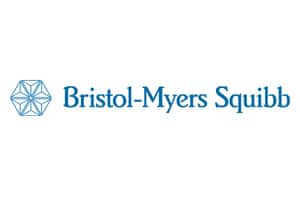
Bristol Myers Squibb (BMS) has reported positive topline results from a phase 3 study of CAR-T therapy Breyanzi as a second-line treatment for relapsed or refractory large B-cell lymphoma (LBCL).
The ongoing TRANSFORM study is evaluating Breyanzi (lisocabtagene maraleucel) compared to current standard of care regimens for LBCL, including high-dose chemotherapy (HDCT) and hematopoietic stem cell transplant (HSCT).
The trial involves adults with LBCL that is primary refractory or relapsed within 12 months of initial therapy, or who are eligible for stem cell transplant.
Topline results from a pre-specified interim analysis showed that the study met its primary endpoint, with Breyanzi demonstrating a ‘highly’ statistically significant improvement in event-free survival compared to standard of care.
The CAR-T therapy also met key secondary endpoints of complete response rate and progression-free survival compared to standard of care, BMS said in a statement.
In addition, overall survival data was immature at the time of the interim analysis, with safety results found to be consistent with the known safety profile of Breyanzi in LBCL patients in the third-line setting.
BMS said that it will complete an evaluation of the TRANSFORM data with the aim of sharing the results at an upcoming, undisclosed medical conference, as well as with health regulators.
“We ambitiously designed the TRANSFORM trial to evaluate Breyanzi’s potential in the second-line setting for patients with relapsed or refractory large B-cell lymphoma against the standard of care regimen of high-dose chemotherapy and autologous stem cell transplant,” said Noah Berkowitz, senior vice president, haematology and cell therapy development, BMS.
“These positive interim results build on our commitment to bring CAR-T cell therapies into earlier lines and highlight the potential of Breyanzi to transform the treatment paradigm for this difficult-to-treat disease, possibly supplanting the need for patients to undergo current aggressive treatment regimens,” he added.
In February, the US Food and Drug Administration (FDA) approved Breyanmzi after previously delaying the decision in November 2020.
The FDA cleared Breyanzi for the treatment of adult patients with relapsed or refractory LBCL after two or more lines of systemic therapy, including diffuse large B-cell lymphoma.
Breyanzi targets CD19, a protein which is highly expressed on the surface of B cells and which remains there following the transformation of these cells from normal to malignant.




